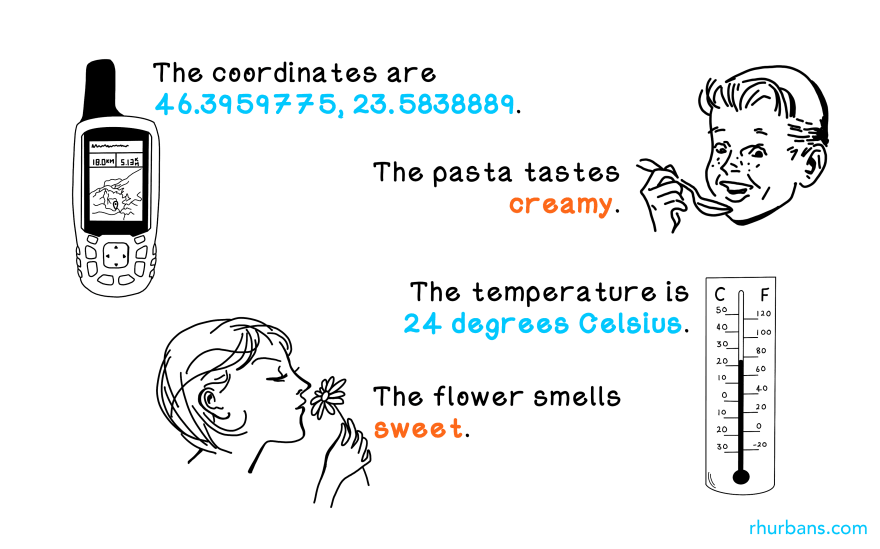Data is everywhere. Data is defined as "information, especially facts or numbers, collected to be examined, considered and used to help decision-making". We're unconsciously using data all the time - you're consuming this piece of data right now.
Data comes in different shapes and sizes - the temperature right now at at the Arctic, the number of red wolves left in existence, the texture of the pasta I had for dinner.
It's interesting that we can measure temperature in something we all agree on, like degrees Celsius, but measure the texture and taste of pasta entirely differently. This is the difference between quantitative and qualitative data...
Although data is described as being facts, it is often not. Nuance and bias in the way we measure, collect, and organise data can cause issues. To boot, different interpretations and intentions when using data creates a plethora of potential problems.
We're always consuming data, and we're making machines do interesting things with it. Taking care and paying attention to the data that you're using and for what intention is the hardest and most important part in business decision making, data science, and the future...
This post shows some machine learning attacks, illustrating how small anomalies in the provided data can result in algorithms wildly misinterpreting it:
And these trippy examples based on research from OpenAI are an amazing look at artificial neural networks being able to respond to the same concept whether data is presented literally, symbolically, or conceptually (https://openai.com/blog/multimodal-neurons/).
The future is bright, interesting, and somewhat scary. If you enjoyed this thread, check out my book: http://bit.ly/gaia-book, consider following me for more, or join my mailing list for infrequent knowledge drops in your inbox: https://rhurbans.com/subscribe.










Top comments (0)